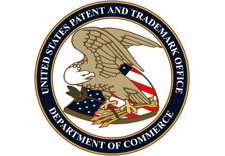Past And Future Patent Pain: When Does The Law Recognize Abuse For What It Is?
 The past few weeks have brought a few good-news headlines about the patent system that, on a second reading, also show much of this mess still needs cleaning up.
The past few weeks have brought a few good-news headlines about the patent system that, on a second reading, also show much of this mess still needs cleaning up.
First came welcome confirmation that one of the U.S. Patent and Trademark Office’s more innovative moves to improve patent quality might work as promised. On July 22, Stack Exchange co-founder Joel Spolsky posted a lengthy update about Ask Patents, the site his company created for the PTO last September to allow software developers to collaborate in finding prior art that might invalidate requested patents.
In it, Spolsky explained that he used the site to investigate a Microsoft application covering a way to scale graphics for different screen resolutions–and, contrary to his fears, about 10 minutes of research and input from another Ask Patents user led to the PTO rejecting the application. He wrote of this hope that “this kind of individual destruction of one software patent application at a time might start to make a dent in the mountain of bad patents getting granted.”
Later that day, a court ruling illustrated the height of that mountain. The Court of Appeals for the Federal Circuit (historically, an exceptionally pro-patent docket) upheld a jury verdict overturning a set of patents covering interactive Web-multimedia implementations granted to a patent-holding company named Eolas. Which would have been wonderful news had Eolas not filed for the first of those patents some 19 years earlier.
Instead, it was something closer to pathetic that it took almost the entire 20-year term of a patent to find it invalid–but at least Eolas lost out on the extra six years of enforceability it would have had to take people to court.
And on Wednesday, the Electronic Frontier Foundation, with support from groups and sites like Public Knowledge, Engine Advocacy, Ask Patents and the Application Developers Alliance, launched a site called Trolling Effects. The idea here is to collect a crowd-sourced database of the “demand letters” many patent holders send to shake down potential defendants into settling upfront.
At some level, you almost have to admire the elegance of this hack of the legal system. It’s expensive to go to court (a 2011 survey by the American Intellectual Property Law Association found median defense costs of $650,000 for a patent claim with less than $1 million at risk), and if you offer a potential legal target a cheaper settlement you get that money right away and get proof of your claim to present to the next target. Indeed, earlier in July the New York Times noted how this business model was making IPNav owner Erich Spangenberg about $25 million a year.
In the past, recipients have found it difficult to tell who else has been targeted with an absurd claim of infringement for, no kidding, using a scanner connected to an office network–and to see through the layers of shell companies that separate the actual patent holder from the names on each letterhead. Exposing and indexing these shakedown demands should help.
But Trolling Effects can’t undo the massive overhang of bad patents already out there. And if Ask Patents stops every single bad patent application from now on, older flawed patents will remain available as potential weapons until as late as September 2038.
Reversing old patents, as the Eolas saga teaches, is a slow and expensive process. In that case, Web inventor Tim Berners-Lee had to fly out to a Texas courtroom to testify that implementations of interactive pictures, audio or video on the Web predated Eolas’s patent filing. Money alone doesn’t suffice to wage that kind of campaign; you need a level of cussed stubbornness too.
Years after Amazon coughed up a $450 million settlement to the “non-practicing entity” called Soverain Software for allegedly infringing patents covering online shopping carts, the smaller retailer NewEgg.com refused to settle and finally had Soverain’s patents invalidated on prior-art and obviousness grounds in January.
The basic problem here is that the intellectual-property legal regime does not seem programmed to recognize this exploit of a government-granted monopoly as the abuse it is.
Companies like Eolas and Soverain practiced legalized extortion for years, using patents widely recognized as laughable before courts finally saw fit to nuke them; in the copyright sphere, SCO spent the past decade doing the same with bogus copyright claims concerning the Linux operating system. But will Eolas and Soverain face serious accountability for their conduct? Not even SCO’s Chapter 7 bankruptcy filing last summer has led to its deserved liquidation–a Utah district court judge just gave the company one more chance in court.
It’s borderline breathtaking when a court drops a hammer on a serial IP law abuser the way District Judge Otis Wright teed off on the copyright-trolling firm Prenda Law in early May.
But if we can’t shorten the half-life of all of these radioactive patents already handed out and we can’t decrease the cost of battling patent-troll lawsuits, we should try to make patent trolling a more expensive and hazardous occupation.
Recent patent-reform proposals have moved in that direction. The White House’s suggested fixes, for example, include “providing district courts with more discretion to award attorney’s fees” to punish “abusive court filings,” and bills such as the SHIELD Act reintroduced by Reps. Jason Chaffetz (R-UT) and Peter DeFazio (D-OR) this spring and the Patent Abuse Reduction Act proposed by Sen. John Cornyn (R-TX) would make that the standard, not just an option that courts rarely exercise now.
(The Computer & Communications Industry Association, which runs this blog, has endorsed both bills and others along those lines.)
But one other recent patent-litigation headline offers a reminder that raising the cost of patent trolling doesn’t need to wait on new legislation crawling through Congress. In late May, Vermont attorney general Willliam H. Sorrell announced that his office had sued MPHJ Technologies, the firm behind 40 shell companies that sent those scanner patent-infringement letters to Vermont businesses and non-profits, for “unfair and deceptive acts” violating the state’s consumer protection act.
That step and other litigation targeting patent trolls–for instance, Rackspace’s recent breach-of-contract suit against IP Nav and a patent owner, Parallel Iron, that it represents–may be a reach. Maybe they will only result in patent trolls being forced to spend their own money on a tedious and expensive defensive campaign in court.
Yes, I would be okay with that.








